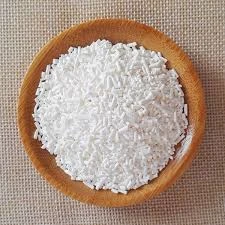
Natural seaweed fertilizer for enhanced organic farming and sustainable gardening practices
The Benefits of Organic Seaweed Fertilizer A Sustainable Solution for Modern Agriculture
In recent years, the growing awareness of sustainability and organic farming practices has led to a remarkable rise in the popularity of organic seaweed fertilizers. Derived from various species of marine algae, such fertilizers offer a plethora of benefits for both the environment and agricultural productivity. This article delves into the advantages of organic seaweed fertilizers, exploring their composition, uses, and impact on plant health and growth.
Composition of Organic Seaweed Fertilizer
Organic seaweed fertilizers are primarily derived from different types of seaweed, which thrive in nutrient-rich marine environments. The most commonly used species in the production of fertilizers are Ascophyllum nodosum, Laminaria, and Fucus vesiculosus. These marine plants are loaded with essential nutrients, including nitrogen, potassium, phosphorus, and a myriad of trace elements, such as iron, zinc, and magnesium. Furthermore, seaweeds contain natural growth hormones, vitamins, and amino acids, which play crucial roles in plant growth and development.
Enhancing Soil Health
One of the foremost benefits of organic seaweed fertilizers is their ability to enhance soil health. They improve soil structure, encourage beneficial microbial activity, and increase organic matter content. When applied to the soil, seaweed fertilizers promote the formation of aggregates, resulting in better aeration and moisture retention. This not only supports the growth of plant roots but also diminishes the risk of soil erosion and degradation.
Moreover, the beneficial microorganisms promoted by seaweed fertilizers contribute to the natural fertility of the soil. These microorganisms help decompose organic matter, releasing essential nutrients into the soil. This synergistic relationship between seaweed fertilizers and soil microbes ultimately leads to a more resilient and productive agricultural ecosystem.
Promoting Plant Growth
Organic seaweed fertilizers are renowned for their ability to promote robust plant growth. The natural growth hormones found in seaweed, such as cytokinins, auxins, and gibberellins, stimulate cell division and elongation, resulting in stronger stems and larger leaves. Additionally, these hormones enhance root growth, leading to improved nutrient and water uptake.
organic seaweed fertilizer

Numerous studies have shown that plants treated with organic seaweed fertilizers exhibit increased resistance to stress factors, such as drought, pests, and diseases. This is largely due to the enhanced nutrient availability and improved overall plant vigor. For instance, research has demonstrated that crops treated with seaweed extract show greater resilience to environmental stress, leading to higher yields.
Boosting Nutritional Quality
Using organic seaweed fertilizers can significantly improve the nutritional quality of crops. The rich array of micronutrients and trace elements found in seaweed translates to enhanced mineral content in the produce. This is especially crucial in today’s agricultural landscape, where many conventional farming practices have led to nutrient depletion in soils and an overall decline in the nutritional quality of crops.
Furthermore, the use of organic fertilizers like seaweed can lead to produce that is more flavorful and enriched with essential minerals, promoting better health for consumers. As a result, farmers who adopt organic seaweed fertilizers not only contribute to sustainability but also respond to the growing consumer demand for organic, nutrient-dense foods.
Environmental Benefits
In addition to their agricultural benefits, organic seaweed fertilizers offer significant environmental advantages. Unlike synthetic fertilizers, which can lead to soil acidification and water pollution due to runoff, seaweed fertilizers release nutrients slowly and steadily into the soil. This slow-release mechanism reduces the risk of chemical leaching and promotes a balanced approach to nutrient management.
Moreover, the harvesting of seaweed is generally considered sustainable, especially when conducted in an environmentally responsible manner. Being a renewable resource, seaweed farming can also contribute positively to marine ecosystems by reducing carbon dioxide levels and improving water quality.
Conclusion
In conclusion, organic seaweed fertilizers represent a powerful tool for promoting sustainable agriculture. With their impressive nutritional profile, ability to enhance soil health, and positive impact on plant growth, these natural fertilizers are well-suited to meet the needs of modern farming. As the agricultural sector continues to evolve towards more sustainable practices, organic seaweed fertilizers will undoubtedly play a vital role in ensuring productive, healthy crops while protecting our precious environmental resources. By embracing these natural solutions, farmers can contribute to a more sustainable future for agriculture and food production worldwide.
-
Understanding Synthetic Rubber OptionsNewsApr.27,2025
-
Trichloroisocyanuric Acid: Essential for Clean and Safe WaterNewsApr.27,2025
-
Sodium Dichloroisocyanurate: Key to Safe Water TreatmentNewsApr.27,2025
-
Sodium Acid Pyrophosphate: Essential in Modern Food ProcessingNewsApr.27,2025
-
Essential Water Treatment ChemicalsNewsApr.27,2025
-
Denatured Alcohol and Its Industrial UsesNewsApr.27,2025
-
The Versatile Uses of Sodium BicarbonateNewsApr.24,2025
Hebei Tenger Chemical Technology Co., Ltd. focuses on the chemical industry and is committed to the export service of chemical raw materials.
-

view more DiethanolisopropanolamineIn the ever-growing field of chemical solutions, diethanolisopropanolamine (DEIPA) stands out as a versatile and important compound. Due to its unique chemical structure and properties, DEIPA is of interest to various industries including construction, personal care, and agriculture. -

view more TriisopropanolamineTriisopropanolamine (TIPA) alkanol amine substance, is a kind of alcohol amine compound with amino and alcohol hydroxyl, and because of its molecules contains both amino and hydroxyl. -

view more Tetramethyl Thiuram DisulfideTetramethyl thiuram disulfide, also known as TMTD, is a white to light-yellow powder with a distinct sulfur-like odor. It is soluble in organic solvents such as benzene, acetone, and ethyl acetate, making it highly versatile for use in different formulations. TMTD is known for its excellent vulcanization acceleration properties, which makes it a key ingredient in the production of rubber products. Additionally, it acts as an effective fungicide and bactericide, making it valuable in agricultural applications. Its high purity and stability ensure consistent performance, making it a preferred choice for manufacturers across various industries.











